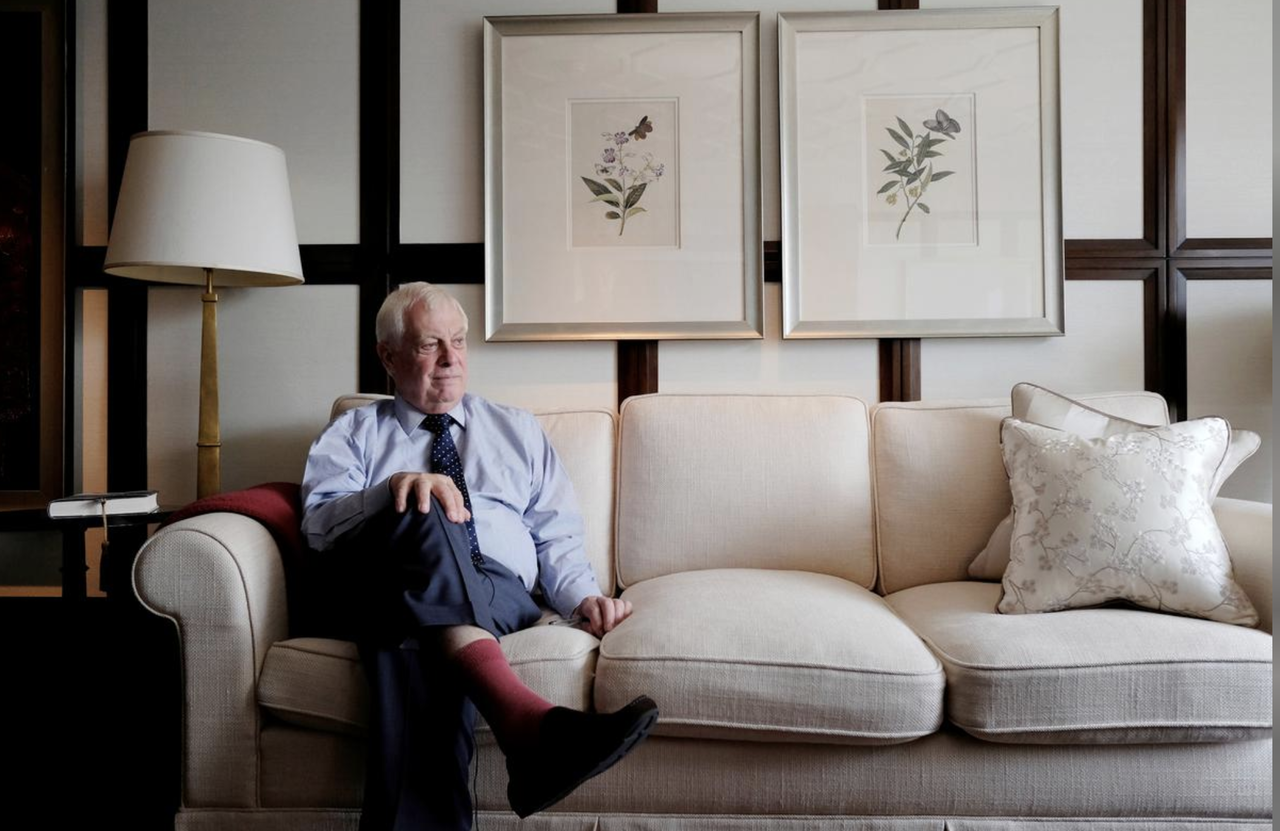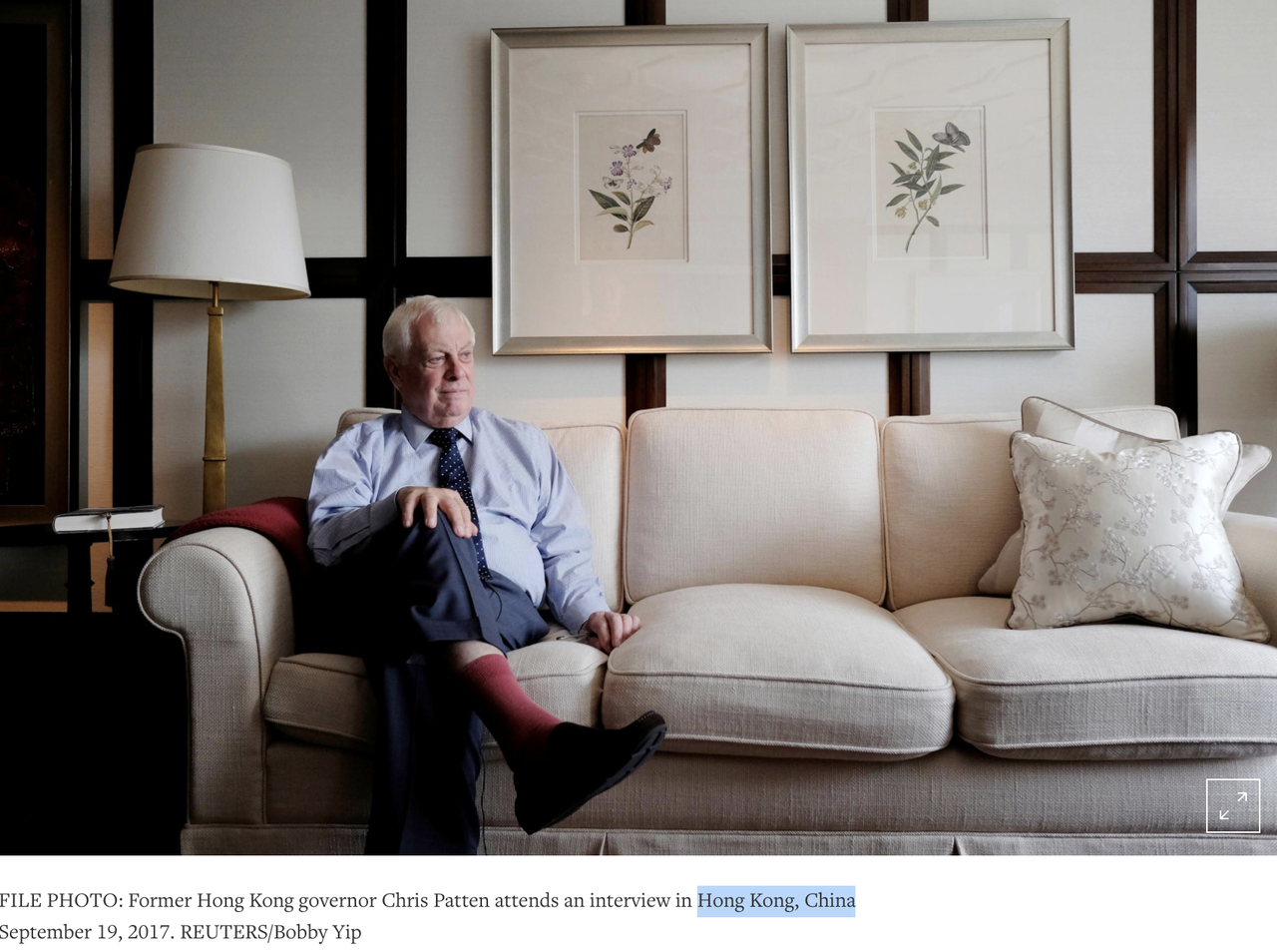“We Must Stop Kowtowing To Beijing” – Former UK Gov Warns “China Has Betrayed Hong Kong” With New Security Law
Tyler Durden
Sat, 05/23/2020 – 11:35
As China pushes through a new National Security law that Secretary of State Pompeo has described as a “death knell” for political freedom on the island, the last British governor of Hong Kong, who witnessed the raising of the Chinese flag over the territory’s seat of government back in 1997, is calling on Prime Minister Boris Johnson to “stop kowtowing” to Beijing and instead call out President Xi for violating the joint declaration.
Though HK’s Basic Law requires the island to adopt a national security law, every attempt by the local government to adopt one has been met with widespread protests. As we learned last summer, any law that might erode freedoms enjoyed by Hong Kongers can elicit a massive backlash, just like the fast-tracked extradition bill sparked the latest round of pro-democracy protests in HK.
The difference, this time, is that the global situation has changed. A newly ascendant China, under President Xi, is flexing its muscle and putting its foot down. As far as cooperation with the West is concerned, from here on out, it’s China’s way, or the high way. And, as President XI threatened in a speech back in early 2019, foreigners who tamper with China’s dominance over Hong Kong, Taiwan and any other territory claimed by Beijing do so at their own peril, an explicit threat of military retaliation.
With the Standing Committee expected to extraneously impose changes to Hong Kong’s constitution by the end of next week, Hong Kong’s Beijing-installed chief executive has indicated that the local government, which she leads, will adopt and enforce the new laws, which will effectively render HK’s popular street demonstrations illegal.
This is why Chris Patten, best-known in the UK as the last governor of HK, believes it’s time for the West to take a harder line with Beijing. China has betrayed Hong Kong, Patten said. Beijing has no intention of ‘playing ball’ with the West, and it’s time for American and British industry to stop holding out for the “pot of gold” – ie unfettered access to the Chinese market. Because Beijing would never allow that to happen.
“The Hong Kong people have been betrayed by China,” Patten was quoted as saying by The Times newspaper. Britain, he said, had a “moral, economic and legal” duty to stand up for Hong Kong.
China’s plans to impose the new security law mentioned above is destroying the declaration, Patten said, and establishing a “Chinese dictatorship” (when the treaty was struck, the west hoped the government in Beijing would liberalize by the time Hong Kong was officially handed over in 2047. Instead, it’s China that’s imposing changes in Hong Kong’s culture from the top down). Earlier this week, President Donald Trump warned Washington would react “very strongly” should Beijing move ahead with imposing the law. Aside from that, the US also allowed the “Open Skies” treaty with Moscow that allowed for mutual monitoring of the other side’s nuclear munitions and other armaments.
Patten said the West should stop chasing the illusory promise of Chinese gold and that Britain should think carefully about Chinese telecoms equipment maker Huawei’s involvement in the 5G network.
“We should stop being fooled that somehow at the end of the all the kowtowing there’s this great pot of gold waiting for us. It’s always been an illusion,” Patten said.
“We keep on kidding ourselves that unless we do everything that China wants we will somehow miss out on great trading opportunities. It’s drivel.”
Fortunately, it appears the coronavirus outbreak has helped sour the West’s trust in Beijing. Yesterday, the Telegraph reported that Johnson was weighing whether to further reduce Huawei’s involvement in the UK’s 5G network.
Specifically, Johnson is aiming to reduce China’s involvement in the UK’s telecoms infrastructure to zero by 2023.
An even bigger fear, is that the acquisitiveness of Chinese companies and the prevalence of Chinese engineers, scientists and academics in critical fields, is allowing Beijing’s influence to bleed through in sometimes unexpected ways. Hollywood is facing criticism for kowtowing to Beijing after a Chinese conglomerate bought a US movie production studio.
And in another example, what’s that we see in the credits under a photo of Patten taken by a Reuters photographer?
In reality, it’s a small price to pay to keep at least some western journalists inside China. But it’s also a sign of China’s general attitude toward the West: they’re done kowtowing. From here on out, anybody who wants access to China must agree to play by the CCP’s rules – or else.

